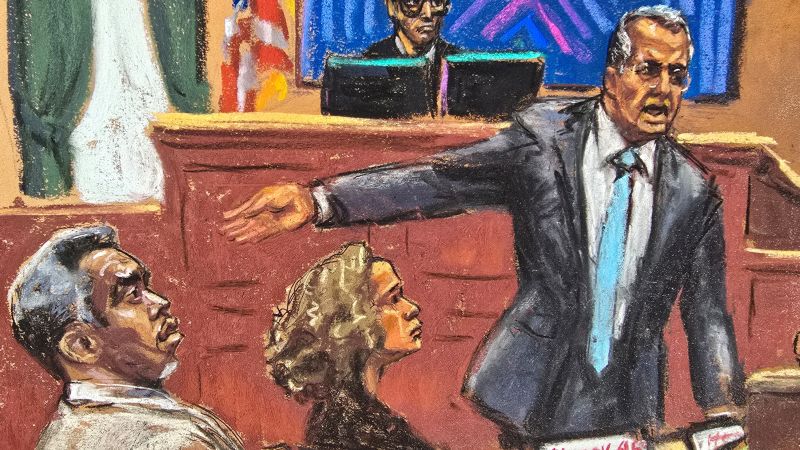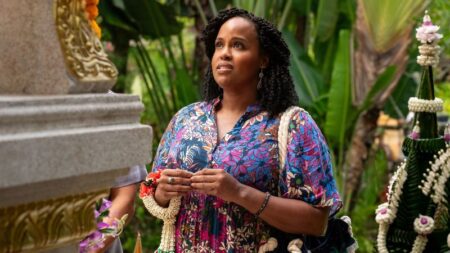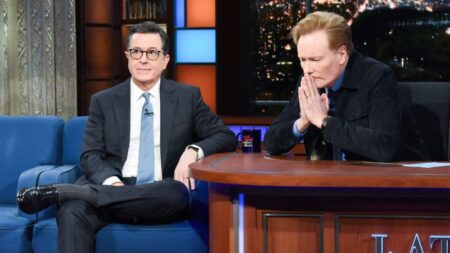The legal world is often a dramatic tapestry woven from the threads of celebrity, scandal, and social issues. Such is the case with the trial of Sean “Diddy” Combs in 2025, which echoes the notorious trial of O.J. Simpson in 1995. Both cases involve high-profile Black male celebrities who had garnered substantial support from their communities, yet they also delve into darker themes such as domestic violence and the nature of public discourse surrounding these issues. While the specifics of the alleged crimes diverge significantly, both trials exemplify how certain cultural dialogues continue to resonate through the years, and how the narrative around them has transformed.
The O.J. Simpson case marked a watershed moment in American legal history. Its unparalleled public interest birthed an era dubbed “trialtainment,” where an insatiable thirst for every detail became a defining characteristic of media consumption. The 1995 courtroom drama captivated audiences with its sensational aspects — from profound questions of race relations to the intimate details surrounding the murder of Nicole Brown Simpson and Ron Goldman at the hands of a former NFL star turned actor. As the gripping events unfolded in the courtroom, millions tuned in day after day, creating a 24/7 cycle of news coverage that showcased how law and celebrity could intersect in ways that kept the public at the edge of their seats.
Fast forward thirty years to 2025, where the attention has again turned to a celebrity trial, this time surrounding Combs, who stands accused of sex trafficking, racketeering, and related offenses. Despite the stark differences in allegations — one involving violent crime under horrific circumstances and the other regarding sexual misconduct — the cultural landscape remains charged with curiosity and indignation. While audiences are riveted by these developments, a contemporaneous shift in public discourse regarding race and gender dynamics is evident.
According to legal analyst Lisa Bonner, who has observed these shifts yet disclaims a connection to either trial, the #MeToo movement has catalyzed a significant cultural change. She asserts that many women today are more empowered to speak out against injustices, including domestic violence and sexual abuse. This newfound confidence in giving voice to their experiences marks a profound evolution in societal attitudes toward these sensitive subjects. The conversations surrounding the Combs case thus emerge from a context enriched by the voices of those who have suffered in silence, creating a more conducive environment for honest discourse.
In considering the trial of Sean Combs, it is crucial to acknowledge the fundamental implications surrounding allegations of sex trafficking and exploitation. Combs has vehemently denied the charges, pleading not guilty to all accusations directed against him. As public attention intensifies ahead of a verdict, this trial promises to re-engage audiences concerning issues of consent, power dynamics, and the treatment of women within both the entertainment industry and society broadly.
While O.J. Simpson has since passed away, leaving behind a controversial legacy intertwined with unresolved questions of justice, Sean Combs’ case stands as a harbinger of how celebrity trials evolve over time. The shift in public response and legal scrutiny reflects an expanding awareness within the culture, highlighting how conversations around race, gender, and celebrity status must now navigate a more complex societal framework.
While the media continues to dissect both cases, one can observe a pronounced trajectory in how trials are seen not merely as isolated judicial events but as opportunities to explore deeper societal issues. Each trial, with its particularities and implications, serves as a potent reminder of how far we’ve come, yet how much further we still have to go in achieving fairness and justice. The evolving nature of these discourses invites us not just to witness but to actively engage with them, as they shape our understanding of justice in contemporary society.











